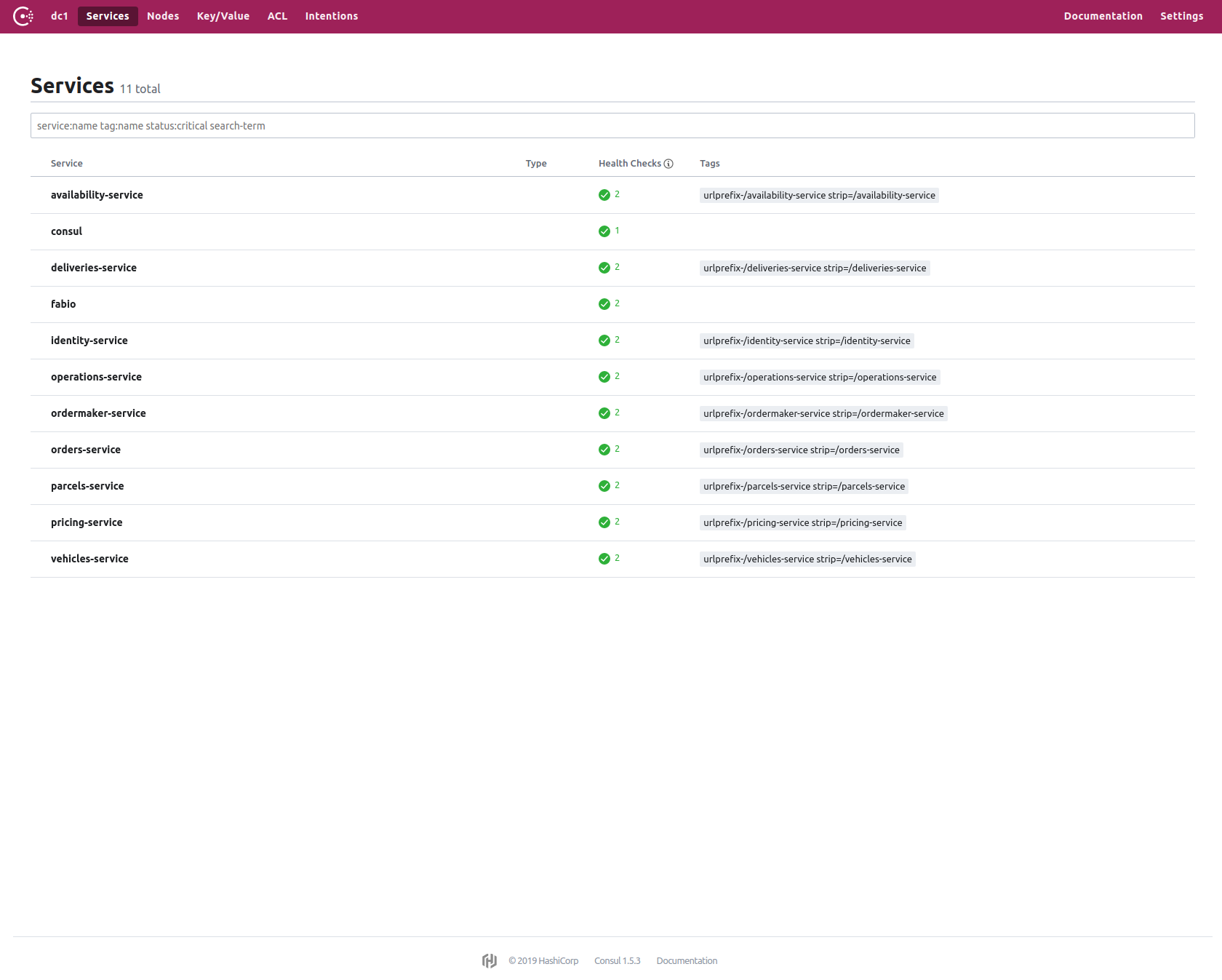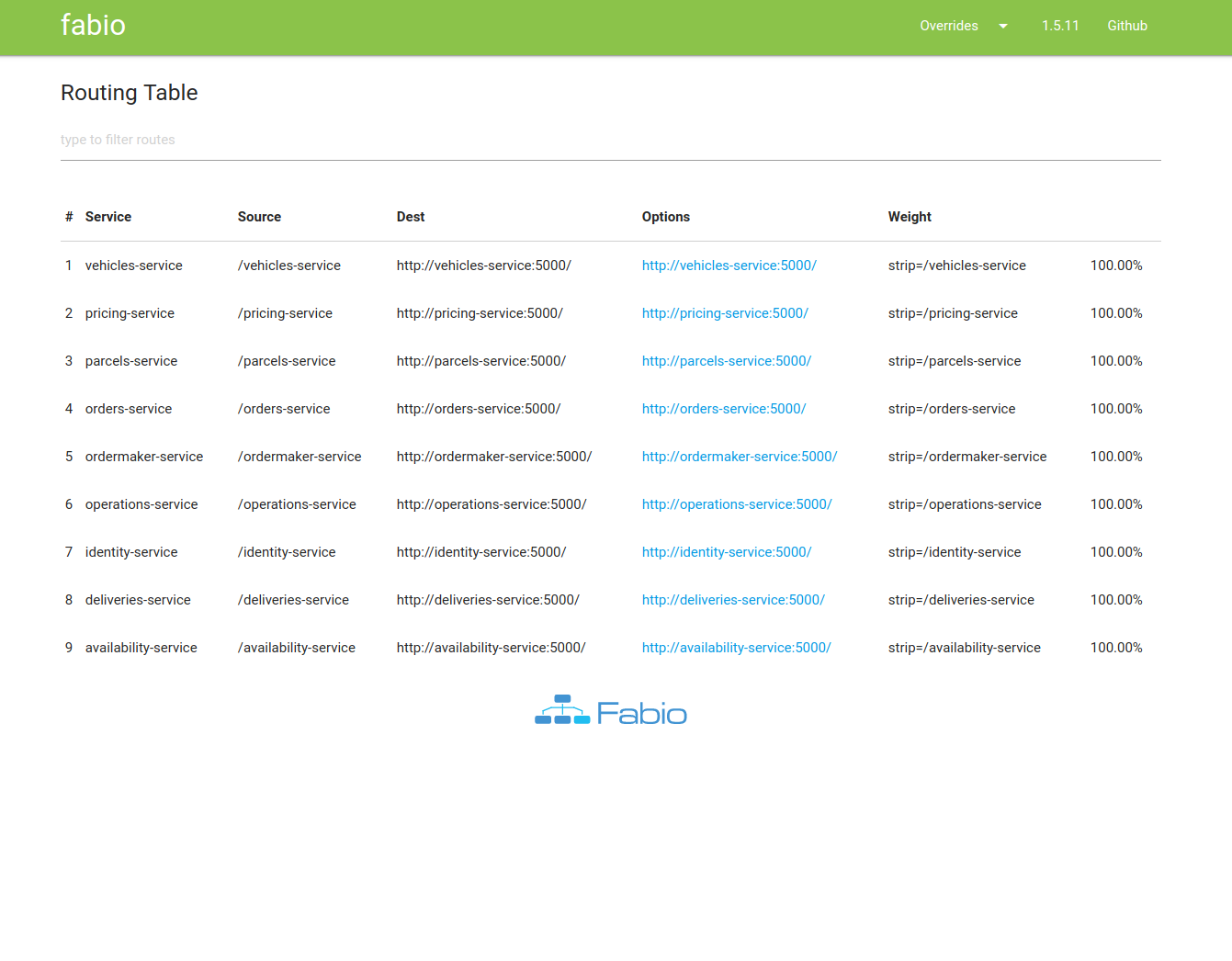Overview
Enhances the built-in HttpClient with an IHttpClient interface with retry policy using Polly and adds a possibility to easily use Consul service discovery and Fabio load balancing mechanisms, as well as switching between the different implementations.
Installation
dotnet add package Convey.HTTP
Dependencies
Usage
Extend IConveyBuilder with AddHttpClient() that will register the required services.
public static IConveyBuilder RegisterConvey(this IConveyBuilder builder)
{
builder.AddHttpClient();
// Other services.
return builder;
}
Then, simply inject IHttpClient (and optionally HttpClientOptions to resolve services URLS) to execute HTTP requests.
public class SomeService
{
private readonly string _webService1Url;
private readonly IHttpClient _client;
public SomeService(IHttpClient _client, HttpClientOptions options)
{
_client = _client;
_webService1Url = options.Services["web-service1"];
}
public async Task FooAsync()
{
var dto = await _client.GetAsync<Dto>($"{_webService1Url}/data");
}
}
Options
type- sets theIHttpClientmessage handler, if none is specified then the default handler will be used, other possible values:consul,fabio.retries- number of HTTP request retries using an exponential backoff.services- dictionary (map) ofservice_name:service_urlvalues that can be used to invoke the other web services without a need to hardcode the configuration URLs, especially useful when service discovery mechanism or load balancer is available.
appsettings.json
"httpClient": {
"type": "",
"retries": 2,
"services": {
"web-service1": "http://localhost:5050",
"web-service2": "web-service2-from-dns"
}
}
Service Discovery
Overview
Provides ConsulServiceDiscoveryMessageHandler (used by IHttpClient) that integrates with Consul service discovery mechanism.

Installation
dotnet add package Convey.Discovery.Consul
Dependencies
Usage
Extend IConveyBuilder with AddConsul() that will register the required services.
public static IConveyBuilder RegisterConvey(this IConveyBuilder builder)
{
builder
.AddHttpClient()
.AddConsul();
// Other services.
return builder;
}
Options
enabled- determines whether Consul integration is going to be available.url- URL of the Consul service.service- name of the service group (multiple instances of the same service will use the sameservicename).address- address of the service.port- port under which the service is available.pingEnabled- register health checks from Consul to validate the service availability (if the service will be offline, it will be removed after thepingIntervalandremoveAfterIntervaltimeouts).pingEndpoint- an endpoint that should be called when performing the healt check by Consul.
appsettings.json
"consul": {
"enabled": true,
"url": "http://localhost:8500",
"service": "some-service",
"address": "localhost",
"port": "5000",
"pingEnabled": true,
"pingEndpoint": "ping",
"pingInterval": 3,
"removeAfterInterval": 3
}
Load Balancing
Overview
Provides FabioMessageHandler (used by IHttpClient) that integrates with Fabio load balancer.
In order to use Fabio, it is required to configure Consul as described above.

Installation
dotnet add package Convey.LoadBalancing.Fabio
Dependencies
Usage
Extend IConveyBuilder with AddFabio() that will register the required services.
public static IConveyBuilder RegisterConvey(this IConveyBuilder builder)
{
builder
.AddHttpClient()
.AddConsul()
.AddFabio();
// Other services.
return builder;
}
Options
enabled- determines whether Fabio integration is going to be available.url- URL of the Fabio service.service- name of the service group used for the Consul registration.
appsettings.json
"fabio": {
"enabled": true,
"url": "http://localhost:9999",
"service": "some-service"
}